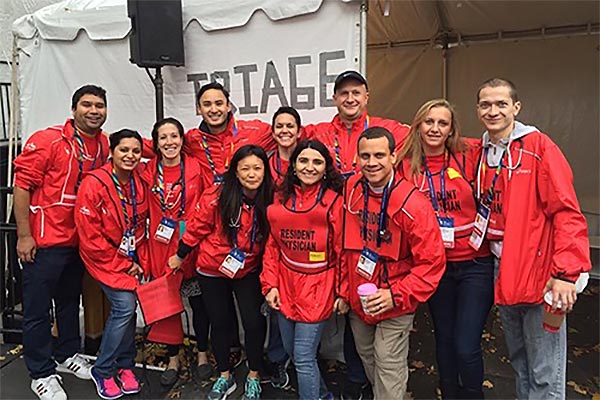NYC RING and the Einstein ICTR’s Community Collaborative Core invite Montefiore-Einstein faculty, clinicians, students, associates, and local community-based organization partners to come together on April 14, 2026 for an afternoon and evening focused on bridging academic research, clinical practice, and community expertise through community engagement primary care research.
Learn More
×
The Community Collaborative Core ensures that community engagement occurs across the full spectrum of clinical and translational research and in synergy with the community The overall aim of the Community Collaborative Core (CCC) is to improve health by transforming our Learning Health System (LHS) into a Learning Health Research Community (LHRC).
The goals of the Community Collaborative Core are to:

- Accelerate Clinical and Translational Science Research (CTR) to address the significant burden of conditions that affect the Bronx community.
- Promote participation of local community in CTR and ensure that community-academic partnerships are fully collaborative.
- Build capacity for sustainable community engagement in all aspects of CTS research.
These goals are closely aligned with the objective of NCATS to create infrastructure to engage communities with research projects and to advance the science of community-engaged research. We will use the CTSA to develop best practices, enduring curricula and other materials, and provide consultations on how to engage communities.
Request Community & Partner Engagement Services
Services
![Community engagement core services]()
Our program offers a wide range of consultative services to support researchers in conducing community engaged research or incorporating community input into their research. Community-engaged research recognizes the strengths of individuals and community organization and involves building authentic partnerships between researchers and community organizations.
Assistance is available for all degrees of community engagement and all phases of research projects, including project planning, study design, implementation, data collection, data analysis, translation and dissemination. Service requests related to grant applications (Letters of Support, Community Advisory Boards, Community Engagement Studios, Community Partner Referrals) should be made at least 1 month before the grant application deadline. Assistance can be provided through the following services:
To submit a request for CCC services, please complete the ICTR Services request form and select Community & Partner Engagement Module. You should be contacted about your request within 24 hours.
Within the CCC Module, the SDoH-C seeks to support the integration of Social Determinants of Health measures in research across the translational spectrum. The CCC Module offers researchers consultations on measuring and assessing the social determinants of health in their research. Research expertise can also be provided in measurement of systems-level bias and discrimination that affect access to and quality of care.
For more information, please fill out an ICTR request form: Service Request Form
The CCC Module offers research expertise and consultations in qualitative data analysis and mixed-methods research techniques.
For more information, please fill out an ICTR request form: Service Request Form
Resources for Researchers
Community Engagement Research Tools:
Community Engagement Research Basics:
Leadership
-
![Anisha Balaji, M.P.H]()
Anisha Balaji, M.P.H
Community Engagement Collaborative (CE-C)
Co-led by:
Health Systems Collaborative (HS-C)
Co-led by:
Social Determinants of Health Collaborative (SDoH-C)
Co-led by: